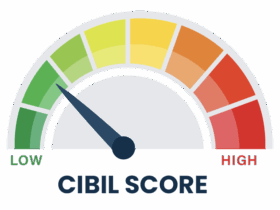Currency derivatives are an essential component of the derivatives market, offering traders and investors opportunities to hedge, speculate, and manage risks related to currency fluctuations.
This article explores the types, benefits, and ways to trade currency derivatives, specifically focusing on their role in the Indian financial market.
What Are Currency Derivatives?
Currency derivatives are derivatives whose value is derived from an asset, in this case currency. In other words it is a contract that gives the holder a right to buy or sell an agreed amount of currency at an agreed rate at a particular date is referred to as a currency derivative. The main reason there exists hedging in currency derivatives is to rid or minimize risks that may come from fluctuating values of currency. Companies that mainly require hedging are the importers and exporters, who must cover their transactions against the volatility in currencies.
To start currency trading, you can open free Demat account online with a registered broker.
Features of Currency Derivatives:
- Exchange-Traded Contracts: These contracts are standardized and traded on regulated exchanges, ensuring transparency and minimizing counterparty risks.
- Underlying Currency: The value of currency derivatives is based on the movement of specific currency pairs.
- Clearing House Intermediaries: Transactions in currency derivatives involve clearing houses, which act as intermediaries between buyers and sellers, further reducing the risk of default.
Currency derivatives are highly liquid and traded in large volumes, making them a popular choice for both institutional and retail investors looking for opportunities in the derivatives market.
Popular Currency Pairs for Currency Derivatives in India
In India, four primary currency pairs are widely traded in the share market derivatives segment:
- USD – INR: The most commonly traded currency pair, given the dominance of the U.S. dollar in global trade.
- EUR – INR: European Union’s euro is another significant currency that is actively traded against the Indian rupee.
- JPY – INR: The Japanese yen is popular among traders looking to hedge against Asian market volatility.
- GBP – INR: With substantial trade ties between India and the U.K., this currency pair remains important for derivative trading.
Why Are Currency Derivatives Popular?
Currency derivatives are gaining popularity due to several reasons. The derivatives market, including equity derivatives and forex derivatives, is attractive because of its versatility and the ability to manage financial risks effectively. Some of the primary reasons for the rising popularity of currency derivatives include:
- Hedging Against Currency Fluctuations: Businesses involved in international trade use currency derivatives to hedge against unfavorable currency movements, protecting their profit margins.
- Speculation: Traders who expect certain currency movements can speculate on the rise or fall of a currency’s value using derivative trading.
- Arbitrage Opportunities: Currency derivative traders often take advantage of price differences between different markets for the same currency pair, profiting from the discrepancies.
- Leverage: Currency derivatives allow traders to control large positions with relatively small initial investments, providing higher potential returns, albeit with higher risk.
The versatility of currency derivatives ensures that they have a wide range of uses, from hedging to speculative trading, making them an integral part of the share market derivatives space.
Benefits of Currency Derivatives
Currency derivatives offer multiple benefits for traders and investors, especially in the context of the volatile forex derivatives market:
1. Hedging Against Currency Risk
Currency derivatives help mitigate the risk of unfavorable currency movements, especially for businesses involved in international trade. Importers and exporters can lock in exchange rates, ensuring that their profits are not wiped out due to currency depreciation or appreciation.
2. Reduced Counterparty Risk
As currency derivatives are exchange-traded and regulated by clearing houses, they come with a reduced risk of default by any of the parties involved in the trade. The structured framework ensures smoother transactions and reduced financial risk.
3. Speculative Opportunities
For an investor, currency derivatives provide a way to speculate on price movements.Traders who accurately predict the direction of a currency’s value can achieve significant returns on their investments.
4. Arbitrage Profits
Arbitrage, the practice of profiting from price discrepancies between different markets, is an effective strategy in currency derivatives. Traders can buy and sell currency pairs in different markets to exploit these differences, often leading to substantial profits.
5. Leverage
Profits allow traders to use leverage, which allows them to manage large positions with less capital. This magnifies potential gains but also increases the potential risk.
6. Diverse Trading Options
With the availability of a wide range of currencies and the flexibility to choose different contract types, traders can diversify their portfolios. This not only spreads the risk but also opens up various market opportunities.
How to Trade in Currency Derivatives in India?
Trading in currency derivatives in India is straightforward, thanks to the well-regulated market and tools like the HDFC Sky app.
Here’s how you can start trading:
1. Choose the Right Derivatives app
To trade in currency derivatives, you’ll need access to the best trading platform that facilitates derivative trading. HDFC Sky is an app that provides investors and traders with a unique connectivity to buy and sell commodities.
2. Understand Market Timings
The currency derivatives market operates between 9:00 AM and 5:00 PM (IST), aligning with the major global forex markets.
3. Open a Trading Account
To trade in currency derivatives, you must open a trading account with a broker. HDFC Sky simplifies this process by offering a user-friendly interface for account setup and derivative trading.
4. Select the Currency Pair
Choose the currency pair you want to trade based on your financial goals. For example, USD-INR is a popular pair for traders looking to speculate on dollar-to-rupee movements.
5. Choose Between Futures and Options
Currency derivatives come in two main forms:
- Currency Futures: Contracts that obligate the parties to exchange a specific currency at a predetermined future date.
- Currency Options: A contract that gives the buyer the right (but not the obligation) to buy or sell a currency at a specified price.
Traders can use the currency derivatives option chain to assess the available strike prices and expiry dates.
6. Place an Order
Once you’ve selected the currency pair and contract type, place your order through the HDFC Sky app. The app also offers analytics, research tools, and real-time updates to help you make informed decisions.
7. Monitor and Manage Positions
Effective management of your positions is crucial in derivative trading. Track your trades, monitor market movements, and adjust your strategy as needed.
Conclusion
Currency derivatives are a powerful tool for managing risks and capitalizing on opportunities in the forex market. Whether you’re a business looking to hedge against currency fluctuations or a trader seeking speculative opportunities, currency derivatives offer multiple benefits, from hedging and arbitrage to leverage and speculation.
Trading in currency derivatives in India is straightforward, especially with modern platforms like HDFC Sky, which provide user-friendly interfaces and robust trading tools. As part of a broader derivatives market, currency derivatives allow investors to protect their portfolios and generate returns in a dynamic global market.








